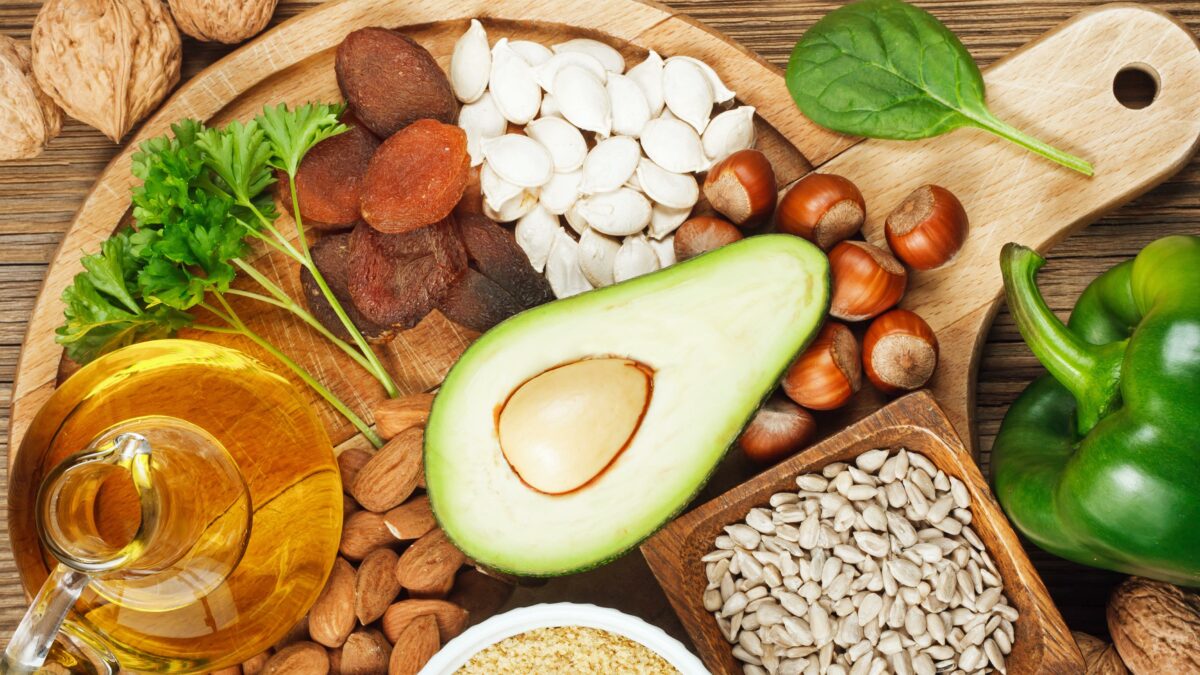
Athletic performance relies not only on training and nutrition but also on optimal vitamin intake. Vitamins play crucial roles in energy production, muscle function, recovery, and overall health for athletes. Understanding how vitamins impact performance can help athletes maximize their potential and achieve their goals.
Importance of Vitamins for Athletes
Vitamin C and its Impact on Recovery
Vitamin C is essential for collagen synthesis, which supports the structure of tendons, ligaments, and joint health, crucial for athletes prone to injuries.
Vitamin D and Bone Health
Vitamin D aids calcium absorption, critical for maintaining strong bones and preventing stress fractures, common among athletes.
Vitamin E for Muscle Repair
Vitamin E acts as an antioxidant, protecting muscles from oxidative damage during intense exercise and promoting faster recovery.
Vitamins and Energy Metabolism
B vitamins (B1, B2, B3, B6, B12) are vital for converting carbohydrates into energy, supporting endurance and reducing fatigue.
Common Vitamin Deficiencies in Athletes
Iron Deficiency and Performance
Iron deficiency can lead to fatigue and decreased endurance due to its role in oxygen transport, impacting aerobic performance.
Magnesium and Muscle Function
Magnesium deficiency affects muscle contractions and relaxation, crucial for proper athletic performance and recovery.
Vitamin D Insufficiency in Indoor Athletes
Indoor athletes may have lower vitamin D levels due to limited sun exposure, impacting bone health and immune function.
Best Food Sources of Performance-Boosting Vitamins
Vitamin A-Rich Foods for Vision and Immunity
Foods like carrots, sweet potatoes, and spinach provide vitamin A, supporting vision and immune function, essential for athletes.
Omega-3 Fatty Acids and Vitamin D in Fatty Fish
Salmon and mackerel are rich in omega-3s and vitamin D, promoting cardiovascular health and bone strength for athletes.
Vitamin C in Citrus Fruits and Bell Peppers
Citrus fruits and bell peppers offer vitamin C, aiding in collagen synthesis and immune support for active individuals.
Supplements for Athletic Performance Enhancement
Creatine and Vitamin B12 for Muscle Power
Creatine supplements enhance ATP production, while B12 supports energy metabolism, beneficial for strength and power athletes.
Branched-Chain Amino Acids (BCAAs) and Vitamin B6
BCAAs aid in muscle repair, and B6 supports amino acid metabolism, helping athletes recover faster from intense training.
Multivitamins for Comprehensive Support
Athletes benefit from multivitamins that provide a balanced blend of vitamins and minerals to fill nutritional gaps and support overall health.
Timing and Dosage Recommendations for Athletes
Pre-Workout vs. Post-Workout Vitamin Intake
Timing vitamin intake around workouts can optimize performance; pre-workout for energy and hydration, post-workout for recovery and muscle repair.
Individualized Dosage Based on Athlete’s Needs
Consulting with a sports nutritionist or healthcare provider can help determine personalized vitamin needs based on training intensity, diet, and health status.
FAQs About Vitamins and Athletic Performance
What vitamins should athletes take daily?
Athletes should prioritize vitamins C, D, E, and B complex for energy, recovery, and immune support.
Can vitamins improve endurance performance?
Yes, vitamins like B complex aid in energy metabolism, supporting endurance and reducing fatigue.
Is it better to get vitamins from food or supplements?
Ideally, athletes should aim to get vitamins from a balanced diet rich in fruits, vegetables, lean proteins, and whole grains, supplementing when necessary to fill gaps.
How does vitamin D affect athletic performance?
Vitamin D supports bone health and immune function, crucial for maintaining strength and reducing the risk of injury.
Are there specific vitamins for muscle recovery?
Vitamins C and E act as antioxidants, reducing oxidative stress on muscles and promoting faster recovery.
Should athletes take iron supplements?
Iron supplements may be necessary for athletes with diagnosed iron deficiency to improve oxygen transport and endurance.
Can vitamins help prevent sports injuries?
Vitamins like C, D, and E support joint health, bone strength, and muscle repair, potentially reducing the risk of sports-related injuries.
What are the signs of vitamin deficiency in athletes?
Signs include fatigue, muscle cramps, decreased performance, frequent illnesses, and slow recovery from injuries.
How can athletes ensure they’re getting enough vitamins?
Tracking dietary intake, considering blood tests for vitamin levels, and consulting with healthcare professionals can ensure athletes meet their vitamin needs.
Are there vitamins that may interfere with athletic performance?
Excessive intake of certain vitamins, like fat-soluble vitamins A and D, can be harmful. Athletes should aim for balanced intake and avoid megadoses without professional guidance.
- Retinol Peel Near Dormansland, Surrey - May 31, 2025
- Skin Treatment & Skincare Consultations Near Thornton Heath, Surrey - May 30, 2025
- Lip Filler How Long Does Bruising Last - May 30, 2025


